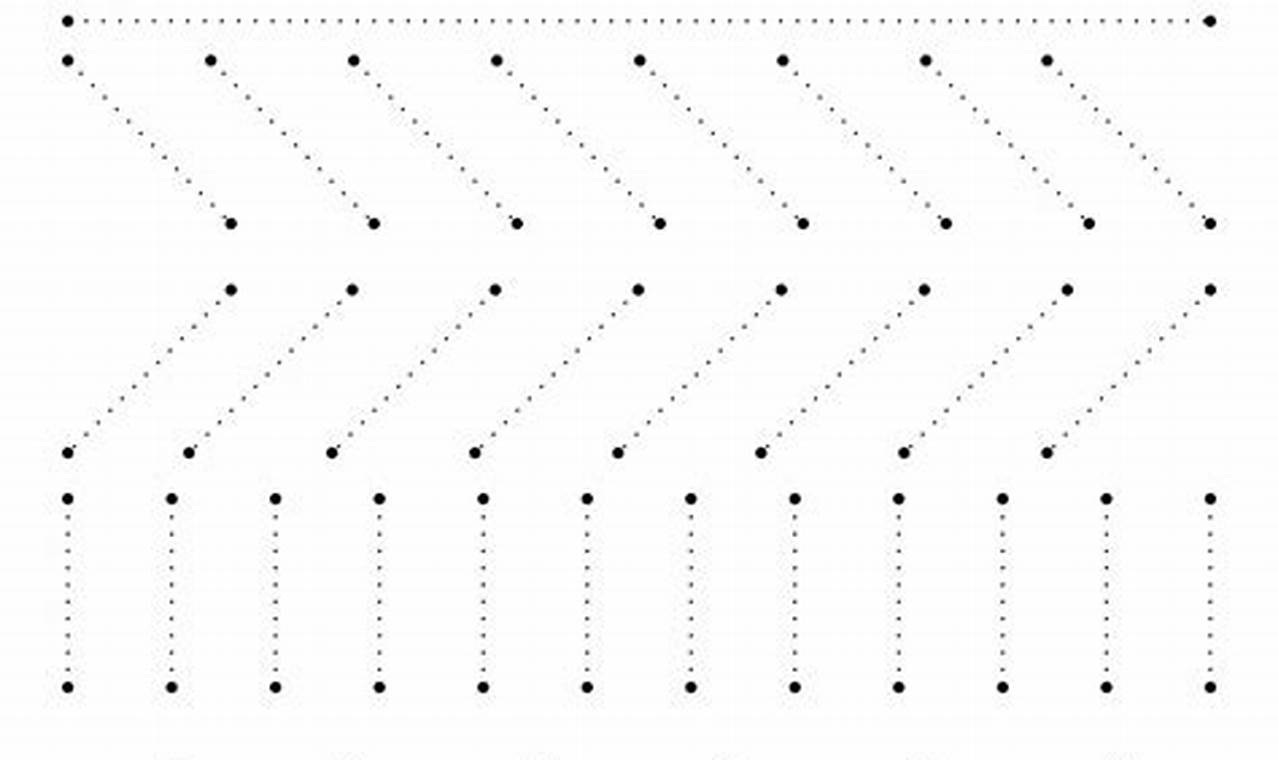The development of fine motor skills is a cornerstone of early childhood education, laying the groundwork for essential abilities such as writing, drawing, and even everyday tasks like buttoning a shirt. Proficiency in fine motor control allows children to manipulate objects with precision and coordination, fostering independence and confidence in their learning journey.
The “Tracing Lines to Develop Fine Motor Control” worksheet offers numerous benefits to young learners. Regular use of this worksheet enhances hand-eye coordination, strengthens finger and hand muscles, and improves pencil grip. These skills are crucial for the successful development of handwriting and artistic expression. Furthermore, the act of carefully tracing lines helps children develop focus and concentration, essential for academic success.
This worksheet contains a variety of line patterns designed to challenge and engage young learners. It features straight lines, curved lines, zig-zag lines, and looped lines, each presented with clear, bold outlines to guide the child’s pencil. Ample space is provided for repeated practice, allowing children to build confidence and refine their motor skills. Fun illustrations subtly integrated into the design add an element of playfulness and maintain engagement.
To use the worksheet effectively, provide a comfortable and supportive environment. A thick pencil or crayon can be easier for small hands to grip. Encourage the child to start by tracing slowly and deliberately, focusing on staying within the lines. Break the task into smaller, manageable sections to prevent fatigue and maintain interest. Positive reinforcement and encouragement are key; celebrate even small improvements and focus on effort rather than perfection.
To supplement the learning provided by this worksheet, consider incorporating other fine motor activities into the child’s daily routine. Activities like playing with building blocks, using playdough, or stringing beads can further strengthen hand muscles and improve dexterity. Additional tracing worksheets focusing on shapes, letters, or numbers are available on Kidtraces.com to provide continuous learning opportunities. Educational games that require precise movements, such as puzzles or dot-to-dot activities, can also be beneficial.
In summary, the “Tracing Lines to Develop Fine Motor Control” worksheet is a valuable tool for nurturing essential fine motor skills in young children. By providing structured practice and engaging content, it supports the development of hand-eye coordination, pencil grip, and concentration all vital for future academic success. Download the worksheet today and witness the benefits firsthand. Explore more free worksheets on Kidtraces.com to continue supporting your child’s learning and skill development.
